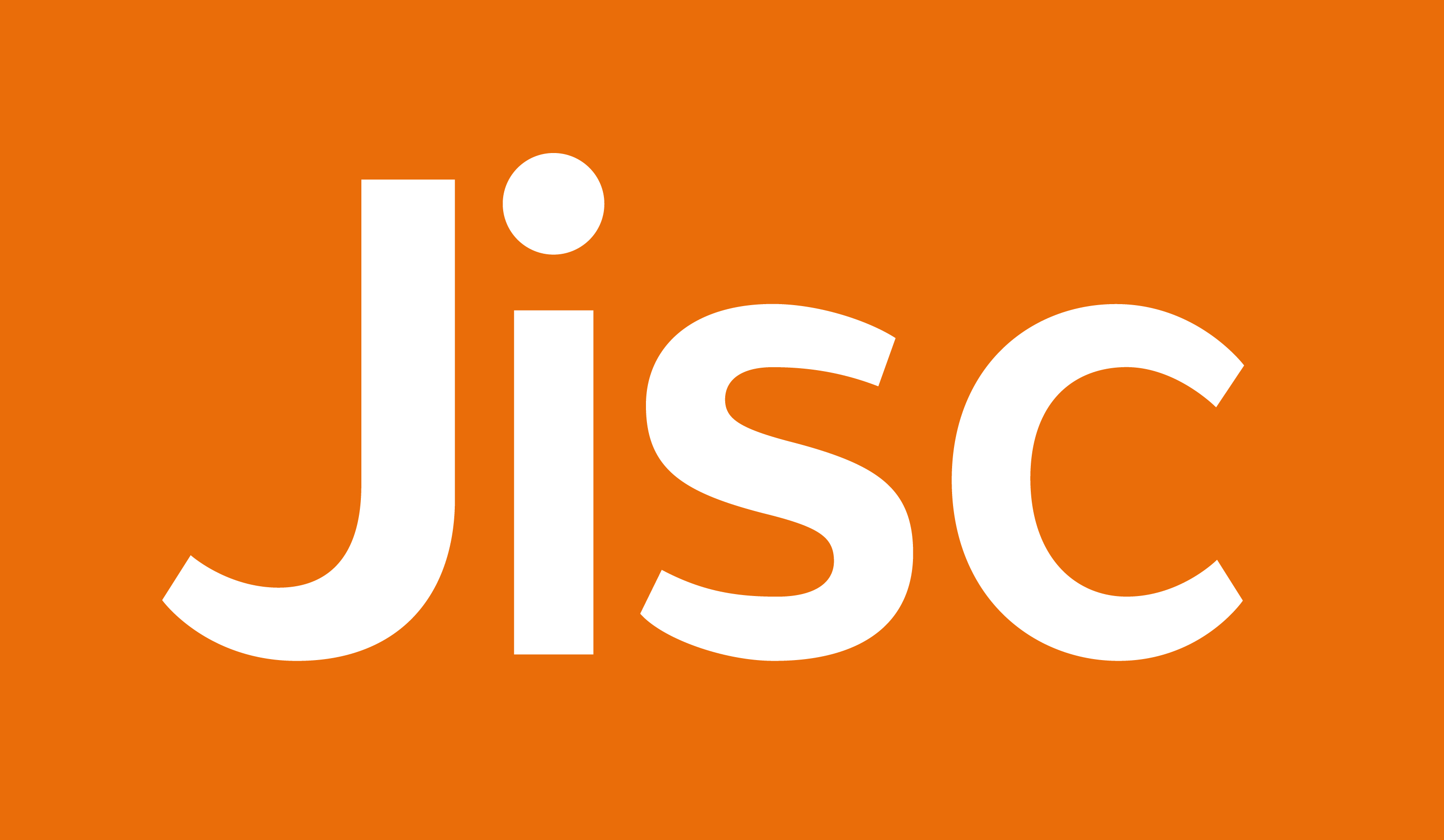DPC
DPF Webinars EPISODE 3: Digital Preservation Futures with Preservica
In this episode DPC Supporters Preservica will introduce their digital preservation products and services, before we hear a user case study on identifying requirements and engaging with the solution. In the final portion of the episode, and drawing from their customer feedback, Preservica will go on to identify the challenges they see emerging in the next five years in an open discussion with members in attendance.
Members and Supporters please login to watch recording
Supplementary information
DPF Webinars EPISODE 2: Digital Preservation Futures with Arkivum
Future-proofing your digital preservation now with Arkivum
With so many priorities and demands on peoples' time, we understand how easy it is to let your digital preservation and data safeguarding requirements slip down the to-do list. Until there is a problem, that is, and you lose that all important digital asset. We've all been there, and the frustration after the event of not taking action sooner is unbearable.
Dr Matthew Addis and Paula Keogh from Arkivum talk about why it's important to act now and provide support on how to pull together a compelling business case that your stakeholders can't say no to. Arkivum real-life users talk about how they achieved this, and why it was important for them to take action when they did.
Matthew and Paula close the session identifying challenges and trends they see emerging in the next five years in an open discussion with members in attendance.
Members and Supporters please login to watch recording
Supplementary Information
DPF Webinars EPISODE 1: Digital Preservation Futures with MirrorWeb
In this episode Phil Clegg and Phil Odgen from MirrorWeb introduce their web and social media archiving products and services, before being joined by Tom Storrar at The National Archives UK to discuss identifying web archiving requirements and engaging with the solution.
In the final portion of the episode, and drawing from their customer feedback, MirrorWeb identify the challenges they see emerging in the next five years in an open discussion with members in attendance.
Members and Supporters log in to watch the recording
Supplementary information
(Remotely) Connecting the Bits
Connecting the Bits and Digital Preservation Futures are the two most important events on the calendar* which allow our members to let us know about the challenges they are facing, the support they need over the next year and any views they have on the way we do things. Plus, they are good fun and a great excuse to catch up with people we haven't managed to see over the previous 12 months...
*If any members are reading this and are planning on attending, but haven’t signed up yet, registration will close tomorrow!
Future-proofing Digital Preservation for Research Data
Introduction
Developing an effective research data preservation policy and workflows provides a foundation upon which all activities around the management of digital materials can be based. In turn, this can bring assurance that digital materials are being managed appropriately and to best effect. However, how can you be sure that what you do now will stand the test of time? And how can you meet the needs of all stakeholders across your institution to make sure active management of research data is optimised AND future-proofed?
Establishing how an organisation should manage its preservation activities is a difficult question. Every institution is different, and no one dataset is the same, but could a shared approach enable the benefit of research data management and digital preservation to be collectively assessed, shared and understood?
This open event is designed to look at a five-year horizon for research data preservation. It will explore how emerging themes in digital preservation and in research data generation challenge or endorse assumptions and values that underpin the Research Data Shared Service. In doing so it will make recommendations that, if adopted, would go some way to 'future-proofing' digital preservation for research data.
Presentations will seek to:
- Identify some of the challenges expected to arise over the next 5 years
- Explore how these might be addressed to safeguard data against future challenges
- Identify whether a shared approach might be feasible
- Examine the role of the RDSS as a platform for efficiency
Would should come?
- Grant holders
- Programme managers
- Collections managers, librarians, curators and archivists within the Higher Education sector
- Records managers in institutions with a need for long-lived data
- Vendors and developers with digital preservation solutions
Programme
1000 – Registration open, tea and coffee
1030 – Welcome, William Kilbride (Executive Director, DPC)
1045 – The future for Research Data Management, Chris Keene (Head of Library and Scholarly Futures, Jisc)
1115 – Q&A
1125 – Managing different data: Case Studies from -
- Emma Hewett, Research & Knowledge Exchange Manager at Royal College of Music
- Mark Hibbett, Research Data Manager at University of the Arts London
- Simon Parker, Senior Access and Support Officer at UK Data Service
1215 – Q&A
1230 – Lunch
1330 – Breakouts: What do we need to support long-term access?
1430 – Feedback from breakouts
1500 – Tea and Coffee
1520 – RDSS: Demo and future plans for sustained access, Paul Stokes (Jisc)
1545 – Panel discussion
1615 – Close
Watch the recordings
Session 1: The Future for Research Data Management
Session 2: Managing Different Data - Emma Hewett, Royal College of Music
Session 3: Managing Different Data - Mark Hibbett, University of the Arts London
Session 4: Managing Different Data - Simon Parker, UK Data Service
Session 5: Feedback from Breakouts
Session 6: RDSS Demo and Future Plans for Sustained Access
Image courtesy of Pascal, Flickr
TownsWeb Archiving joins the DPC’s Supporter Program
Added on 25 May 2018
The Digital Preservation Coalition is delighted to announce that digitization services provider TownsWeb Archiving is the latest organization to join its Supporter Program.
TownsWeb Archiving currently provides digitization, metadata creation and digital collections management software services to the UK cultural heritage sector. With clients including Cadbury’s, Marks & Spencer, Diageo, the Royal Military Academy Sandhurst, Transport for London, Bank of England, GSK and more, TownsWeb works with archives, museums and libraries to digitize their fragile and precious collections and open up access to them online through their PastView system.
With a wealth of experience in advising how best to create digital materials, TownsWeb is now working towards incorporating digital preservation services in order to meet a growing need to sustain access to a digital legacy in the long term; potentially by collaborating with other existing DPC Supporters.
The EC Vision of our Access and Preservation Mission
On the 25th of April this year (2018) the European Commission released its Recommendation on access to and preservation of scientific information Brussels, 25.4.2018 C(2018) 2375 final (author resists temptation of side-rant on ISO standard date formats). This work by Mariya Gabriel and Carlos Moedas replaces that by Neelie Kroes (then Commission Vice-President) back in 2012. This revision ”recognises that big data and high-performance computing are changing the way research is performed and knowledge is shared, as part of a transition towards a more efficient and responsive open science". This is particularly timely as the UK Data Service is working with international colleagues on the SERISS project to consider the legal, ethical, quality and archival practice implications of 'new and novel' forms of big data.
The paper is not long and it's pretty comprehensible, so you may wish to skip these whimsical musings and got straight to the real thing.
Software Preservation Webinar EPISODE 5: Scaling Software Preservation and Emulation
The Software Preservation Webinar Series provides a survey of software preservation contexts. Each episode explores a different software preservation context by providing an overview, discussion with guest speakers (specialists in digital preservation, software studies, scholarly communication, open source software and more) and open discussion with attendees.
The webinar series is jointly hosted by the Digital Preservation Coalition and the Software Preservation Network.
EPISODE 5: Scaling Software Preservation and Emulation
This episode explores current programmatic and project based initiatives to create the processes and infrastructure that will support a growing number of software (re)use cases/organizational users. Our first use case highlights challenges and opportunities associated with scaling an institutional software preservation program. Our second use case highlights the challenges and opportunities associated with scaling software preservation across institutions.
Research Lead and Facilitator:
Guests
- Euan Cochrane (Yale University)
- Maureen Pennock (British Library)
- Klaus Rechert (OpenSLX and University of Freiburg)
Discussion Questions:
- Define scale in the context of your project. How is scale different from growth?
- Are there aspects of software preservation that are not in scope for your project or program to tackle, but are nevertheless crucial to the long-term success of your project or programmatic goals?
Sharing experiences and perspectives is critical to understanding the hurdles in software preservation, to imagining future use of software-dependent data, and to forming a mutual understanding of where collective action is necessary to facilitate those future uses so we hope you will join the discussion.
The webinar series is free to attend and open to all.
Watch the webinar recording
(Runtime 54 mins)
Read the Chat from the webinar: Episode 5
Supplementary Resources
Websites & Blogs
Emulation as a Service (EaaS) at Yale University Library:
https://blogs.loc.gov/thesignal/2014/08/emulation-as-a-service-eaas-at-yale-university-library/
Example of emulated content at Yale University Library
https://twitter.com/euanc/status/998599100311490562
Scaling Emulation as a Service Infrastructure Project
http://www.softwarepreservationnetwork.org/eaasi/
Articles, Reports & Presentations
ARL Best Practices for Fair Use in Software Preservation
http://www.arl.org/focus-areas/copyright-ip/fair-use/code-of-best-practices-in-fair-use-for-software-preservation
Cochrane, E. (2013). “Rendering Matters.” Archives New Zealand.
https://web.archive.org/web/20130218111126/http:/archives.govt.nz/rendering-matters-report-results-research-digital-object-rendering
and examples from the report:
http://archives.govt.nz/resources/information-management-research/rendering-matters-report-results-research-digital-object-0
Day, M., Pennock, M., May, P., Davies, K., Whibley, S., Kimura, A., Halvarsson, E. (2016). “The preservation of disk-based content at the British Library – Lessons from the Flashback project.” http://journals.sagepub.com/doi/abs/10.1177/0955749016669775
“Integrated Preservation Suite” in the 2017-2020 BL Digital Preservation Strategy: https://www.bl.uk/aboutus/stratpolprog/collectioncare/digitalpreservation/strategy/BL_DigitalPreservationStrategy_2017-2020.pdf
Interview with Dirk von Suchodoletz about PLANETS and Emulation: https://blogs.loc.gov/thesignal/2012/12/the-foundations-of-emulation-as-a-service-an-interview-with-dirk-von-suchodoletz-part-one/
Rechert, K., Liebetraut, T., Stobbe, O., Lubetzki, N., Steinke, T. (2017).
“Integrating emulation into library reading rooms”
http://journals.sagepub.com/doi/abs/10.1177/0955749017725427?journalCode=alaa
Rosenthal, D. (2016). Emulation & Virtualization as Preservation Strategies:
https://mellon.org/media/filer_public/0c/3e/0c3eee7d-4166-4ba6-a767-6b42e6a1c2a7/rosenthal-emulation-2015.pdf
Scott, J. (2017) “20 Minutes into the Emulation Future.” Created for the Digital Preservation Coalition Halcyon and On Emulation Summit: https://www.youtube.com/watch?v=uuIOJD2xbjY&t=1s
Ongoing Discussion
Add your thoughts and comments below...
Collaboration in Digital Preservation
In May 2018 I was invited to participate in a workshop entitled ‘The Challenges of Managing Digital Information for Measuring the Sustainable Development Goals’ with a brief to discuss ‘Fostering National and International Collaboration in Preserving and Reusing Digital Information’. This blog post is the manuscript for that presentation. The workshop organisers intend to publish the outcomes of the workshop so the text is presented here as an early draft to encourage comment, criticism or addition.
In this short paper I want to talk about the opportunities and the challenges of collaboration in digital preservation. In particular I will draw on the experience of the Digital Preservation Coalition (DPC), an agency which will be familiar to some of you. I want to reflect on some of the successes we have achieved and barriers we have faced over the years and how we have overcome them, or not as the case may be. I will also project a little to the future, recognising that the collaboration possible through organizations like the DPC cannot be static. I also want to question in a slightly more light-hearted but hopefully insightful way why the DPC is still here and why we have not all been able to get back to our day jobs.
Software Preservation Webinar EPISODE 4: Software in Digital/Scholarly Communications
The Software Preservation Webinar Series provides a survey of software preservation contexts. Each episode explores a different software preservation context by providing an overview, discussion with guest speakers (specialists in digital preservation, software studies, scholarly communication, open source software and more) and open discussion with attendees.
The webinar series is jointly hosted by the Digital Preservation Coalition and the Software Preservation Network.
EPISODE 4: Software in Digital/Scholarly Communications
This episode provides an overview of scholarly communication practices as they relate to software preservation and citation within contemporary scholarly research methods. Attention is paid to evolving and changing practices in a variety of institutional settings (e.g. post-secondary institutions, GLAMs, nonprofits), and to the need for disciplinary responsiveness in publication and citation practices.
Research Lead and Facilitator:
Guests:
- James Howison (University of Texas at Austin)
- Veronica Ikeshoji-Orlati (Vanderbilt University)
- Neil Chue Hong (Software Sustinability Institute)
Discussion Questions:
-
Where (and when) can software preservation discussions enter into the research process? Especially in terms of disciplines such as the humanities where issues of software creation, preservation, and emulation are in the initial stages of development.
-
What role can training take in order to facilitate scholarly communication practices within and beyond institutional boundaries? E.g. outward facing blogs as well as internal communication re. Best practices, workflows etc.
-
What teams/groups should be involved in discussions of software in digital/scholarly communications? How can SPN or other collectives work to build strong networks?
-
Where do you see software in digital/scholarly communications in the next 5 years? 10 years?
Sharing experiences and perspectives is critical to understanding the hurdles in software preservation, to imagining future use of software-dependent data, and to forming a mutual understanding of where collective action is necessary to facilitate those future uses so we hope you will join the discussion.
The webinar series is free to attend and open to all.
Watch the webinar recording
(Runtime 57 mins)
Read the Chat from the webinar: Episode 4
Supplementary Resources
Websites & Blogs
- Alfred P. Sloan Foundation Scholarly Communications Program: https://sloan.org/programs/digital-technology/scholarly-communication
- Andrew W. Mellon Foundation Scholarly Communications Program: https://mellon.org/programs/scholarly-communications/
- Bucknell’s Digital Scholarship Workflow: http://dsc.bucknell.edu/files/2016/08/Digital_Scholarship-Flowchart_ver3.pdf
- CiteAs: https://github.com/Impactstory/citeas-api/
- “Climategate” https://en.wikipedia.org/wiki/Climatic_Research_Unit_email_controversy
- Developers and researchers on cross-functional teams that use digital collections: http://britishlibrary.typepad.co.uk/digital-scholarship/2015/06/bl-labs-competition-winners-for-2015.html#
- FLOSS mole: https://flossmole.org/
- FORCE11 Software Citation Implementation Group https://www.force11.org/group/software-citation-implementation-working-group
- Haters Gonna Hate - why you shouldn't be ashamed of releasing your code https://www.software.ac.uk/blog/2016-10-06-haters-gonna-hate-why-you-shouldnt-be-ashamed-releasing-your-code
- James Howison“Peer Production” course syllabus: https://jameshowison.github.io/peer_production_course/pp_syllabus.html
- London School of Economics and Political Science. Impact Blog. “101 Innovations in Scholarly Communication: how researchers are getting to grip with the myriad new tools” http://blogs.lse.ac.uk/impactofsocialsciences/2015/11/11/101-innovations-in-scholarly-communication/
- London School of Economics and Political Science. Impact Blog. Digital collections offer researchers opportunities to develop new skills and scholarly communications networks. http://blogs.lse.ac.uk/impactofsocialsciences/2017/02/02/digital-collections-offer-researchers-opportunities-to-develop-new-skills-and-scholarly-communications-networks/
- Scholarly and Research Communication Vol 7 No. 2/3 (2016) AND CfP for Theme: The Future of Scholarly Publishing: Algorithms, Bots, Usage Data, Big Data, Visualization, and AI (Questions? Contact Monique Sherrett This email address is being protected from spambots. You need JavaScript enabled to view it.)
- Software Sustainability Institute. “How to Describe and Cite Software.” https://www.software.ac.uk/how-cite-and-describe-software
- 4OSS recommendations: Recommendations to encourage best practices in research software from the Open Source Software Working Group, supported by ELIXIR, SSI and the Netherlands eScience Center: https://softdev4research.github.io/recommendations/
- University of Toronto Scholarly Communications Guide: https://guides.library.utoronto.ca/ScholarlyPublishing
Articles, Reports & Presentations
- Manifesto from Dagstuhl Perspectives Workshop 16252. Engineering Academic Software. “serving as a roadmap towards future professional software engineering for software-based research instruments and other software produced and used in an academic context. The manifesto is expressed in terms of a series of actionable “pledges” that users and developers of academic research software can take as concrete steps towards improving the environment in which that software is produced.”http://drops.dagstuhl.de/opus/volltexte/2017/7146/pdf/dagman-v006-i001-p001-16252.pdf
- Practice papers from the International Digital Curation Conference (http://www.dcc.ac.uk/events/international-digital-curation-conference-idcc) are published afterwards in the IJDC: http://www.ijdc.net/
- Software as a Well-Formed Research Object, DLF 2017 Presentation https://www.slideshare.net/yasmina85/software-as-a-wellformed-research-object
- The Pathways of Research Software Preservation: An Educational and Planning Resource for Service Development
Ongoing Discussion
Add your thoughts and comments below...


































































































































